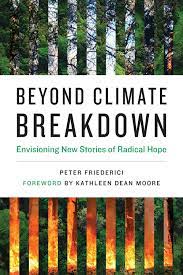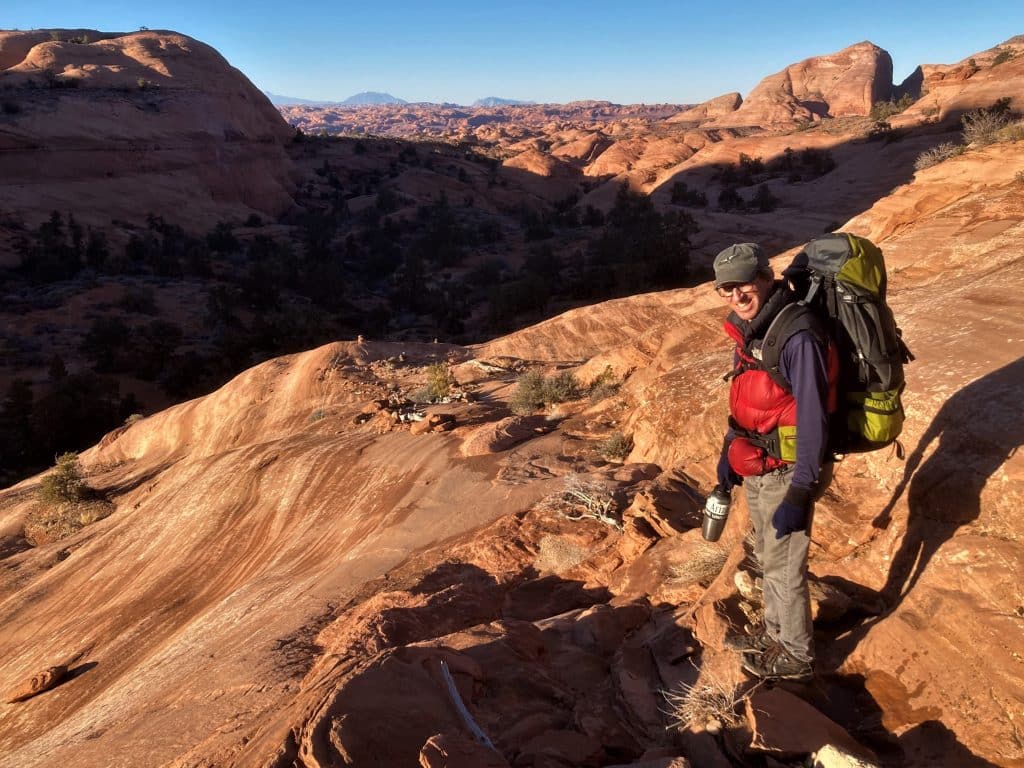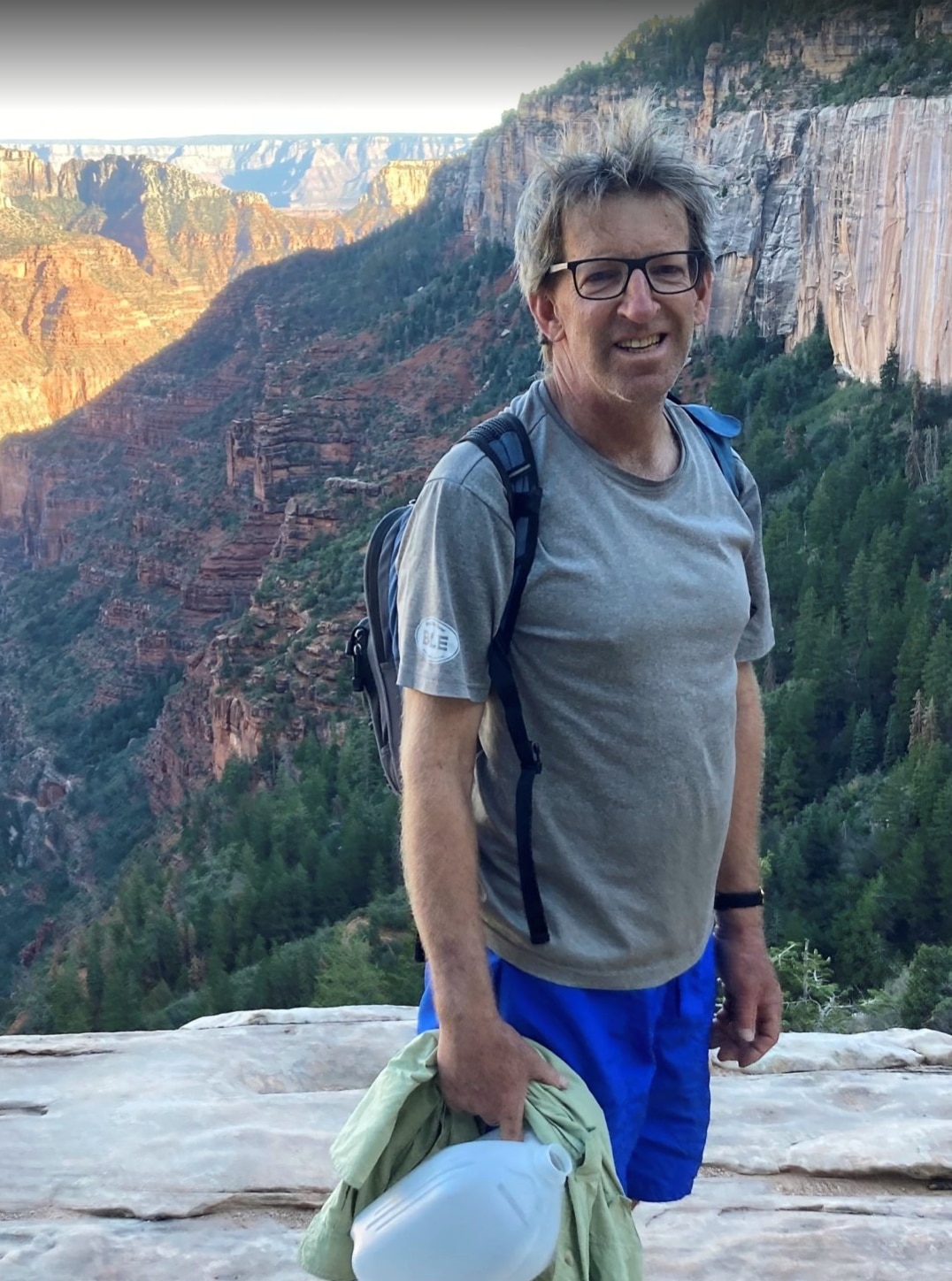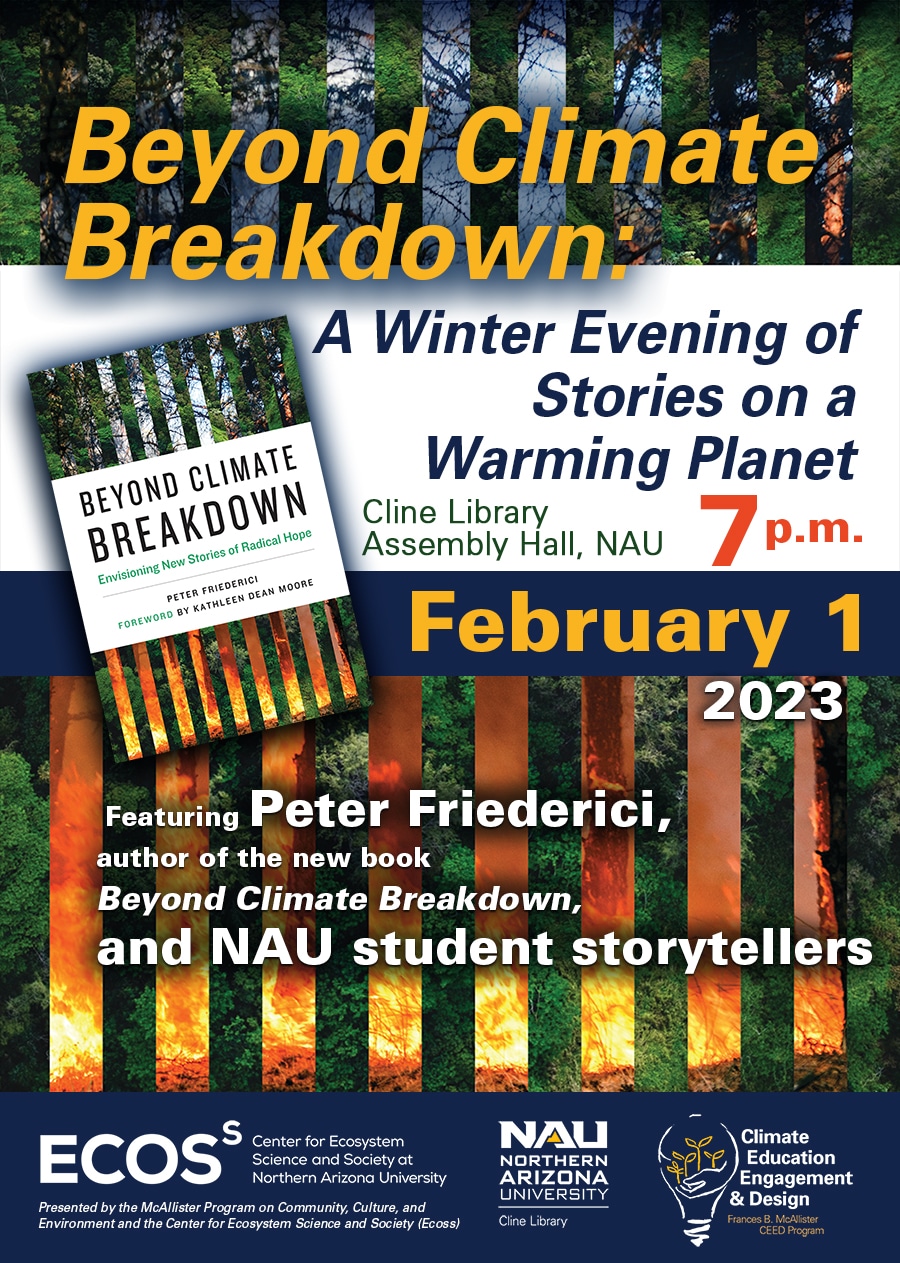Even though he grew up in the Chicago suburbs, Peter Friederici called the Grand Canyon State home almost as soon as he got here. Friederici, professor and director of NAU’s Sustainable Communities master’s program, began his career as a journalist specializing in science and environmental stories. Still writing about science, nature and the environment he aimed to do more in his latest book, “Beyond Climate Breakdown: Envisioning New Stories of Radical Hope.” Inspired by the Greek myths that, through storytelling, imparted a moral, a lesson and wisdom, Friederici is aiming to do just that. He talks life, love of nature and the relative ease of writing his latest book—the muses were with him!
What drove you to the field of journalism and specializing in environmental topics?
The challenges of calculus and organic chemistry in my freshman year as an undergraduate! I’d hoped to be a biology major but was intimidated by those requirements. So, I changed majors dramatically, to comparative literature. It wasn’t until after graduation, when I was working as a brand-new journalist in Chicago, that I realized that I could still follow my passion for science—but by writing about it rather than by doing it.
Why did you start writing books, and how did your most recent book-writing experience differ from past experiences?
I worked as a journalist for about 10 years before my first book was published—The Suburban Wild, which is about my experiences growing up as a nature-loving kid and young man in the Chicago suburbs. Even though that book grew out of my journalism, it was very freeing, and creative, to escape the boundaries of journalism, such as word count limits and news hooks, and to think of the large-scale structural decisions that tie an entire book together. Beyond Climate Breakdown is a different sort of book because, unlike my others, it’s not based on primary reporting; rather, it’s an extended essay that critiques large-scale societal narratives about climate breakdown. But writing it involved many of the same sorts of structural issues and revision. Lots of revision.
What brought you to NAU?
I moved to Tucson after I got my graduate degree, simply because I was attracted to the landscape and the open space. I was working as a freelance journalist and seasonally as a field ornithologist. I love the desert, but after a few years I realized that I won’t ever love hot weather—so I moved to Flagstaff. It’s been home ever since.
What is your favorite aspect of the work you do?
It’s really the back-and-forth between teaching, which is intensely social, and writing, which for me is an intensely solitary experience. Sometimes it feels a bit schizophrenic to love both, and sometimes it’s hard to transition from one of those experiences to the other. But each informs the other in really important ways.
Tell me about a significant childhood memory, and how it has impacted your life today.
I’ll go back to second grade for that. That year I had a wonderful teacher who took our class out into the woods for lessons and who had a classroom subscription to Ranger Rick magazine. I was hooked—on the magazine, for one, but more broadly on the idea that a respectable adult found the little patch of woods by the school a worthwhile site for teaching. Somehow that linked school and learning with the affinity I already felt for nature.
What did you want to be when you grew up?
Once I was old enough to think about actual jobs, I probably thought most about being a wildlife biologist—the kind who would live in the woods near a wolf pack for months to figure out what they do, or maybe study seabirds on some remote Southern Ocean Island. That never happened. But thanks to journalism assignments, I’ve been able to spend time with biologists in place where they’re doing work like that, on projects like studying thick-billed parrots high in Mexico’s Sierra Madre or shorebirds in the Netherlands. That’s been a treat.

Certainly, raising a 17-year-old ranks high on the list. But so does the way in which Beyond Climate Breakdown came together. The writing process was intense and fairly quick. And it wasn’t a book that I had a detailed outline for when I began. Much of the argument in the book developed as I was writing. To me, that’s a gold standard in writing—the process itself helps develop the content. When that happens, writing isn’t a chore anymore, but a truly creative process.
What is your favorite way to spend a day off?
I came to Arizona because of the landscape. I love the open space and the amazing topographic and ecological diversity. And many years later that hasn’t changed. If I have a few hours off, you can probably find me hiking up Mt. Elden or on some other steep trail near Flagstaff. If I have a whole day, I might be hiking into Grand Canyon, and out again. The mix of physical challenge and ecological diversity never fails to present a new experience, even when I’ve been on the same trail many times. And there’s no better community than people I meet on the trail.
What are three things on your bucket list?
- Continuing to immerse myself deeply in being a neighbor and community resident in Flagstaff. As climate breakdown proceeds, intense localism is going to become more and more important.
- Seeing a wildflower superbloom in the Sonoran Desert. There was one going on in 1993, my first year in the state, and it left a deep impression. Maybe this will be the year!
- Writing another book. Topic: we’ll see!
What advice would you give your students?
The main thing is: writing is a process of discovery. Too often, students learn that writing is a matter of turning a cut-and-dried outline into sentences and paragraphs. That leads to cut-and-dried writing and to the conception that writing is a tedious chore. But when writing itself is a process of discovery, all sorts of new possibilities open up. That’s deeply satisfying.
What advice would you give future writers who want to tackle big subjects like climate change?
Find a particular, specific focus that provides an entry point. In Beyond Climate Breakdown, I tackle a very big topic, namely how we craft narratives around the climate crisis. But I felt I had to bring this big topic down to earth, so I periodically return to the ecological particulars of northern Arizona in order to ground my argument. I think that helps readers elsewhere, too, see how climate breakdown issues play out in their backyard.
Interested in learning more about Peter Friederici’s new book? He will be featured in an event at 7 p.m. Wednesday, Feb. 1, at Cline Library. The event is free and open to the public.





